.webp)
Dairy Queen
Most people credit Ronald McDonald as being the first clown fast-food mascot. Wrong. Dairy Queen was putting characters on neon signs a decade before McDonald's got started.
DQ's mascots are strange. Some lasted decades. Others appeared once and vanished. A few were so problematic that Dairy Queen pretends they never existed.
Here's the full timeline.

1940s-1950s
Before Ronald McDonald, there was Curly the Clown.
He appeared on neon signs in the 1940s. Red suit, a cap that switched between blue and red, hair that was yellow or blue, red nose, and a wide smile. He held a curly DQ cone in one hand and a giant cup of soft serve in the other.
Only a handful of these signs were installed. Most are gone. Later, DQ corporate asked the Shelbyville, Indiana location to remove theirs. But one remains in Cedar Rapids, Iowa, where the owner and corporate reached a truce.
Curly was DQ's first mascot. He beat McDonald's to the clown concept by ten years.
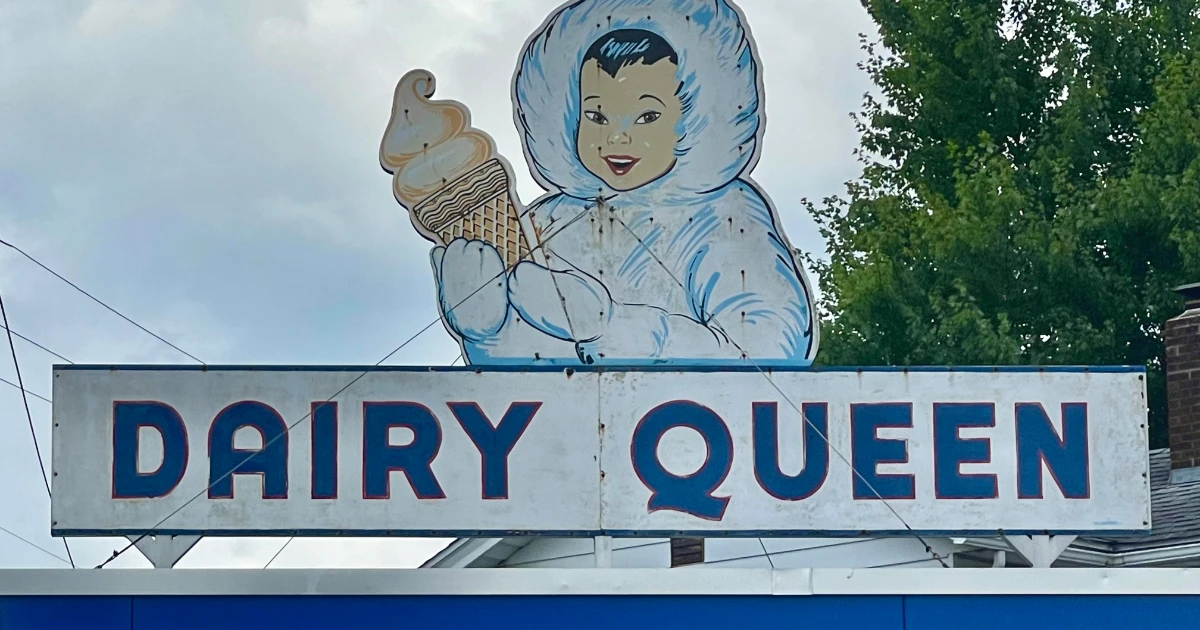
1950s
This one's dark.
The Eskimo Baby appeared on DQ signs in the 1950s, possibly earlier. The character was a caricature of Inuit people: dark hair, a thick coat with a fur collar, gloves, and holding a cone. Sometimes shown as a baby.
A sign in Grafton, Virginia, was repainted and restored in 2016. When the owner demolished the building and rebuilt it in 2019, he moved the sign to the new location.
Today, Dairy Queen doesn't officially support these signs. But they can't force franchise owners to remove them. So they persist.
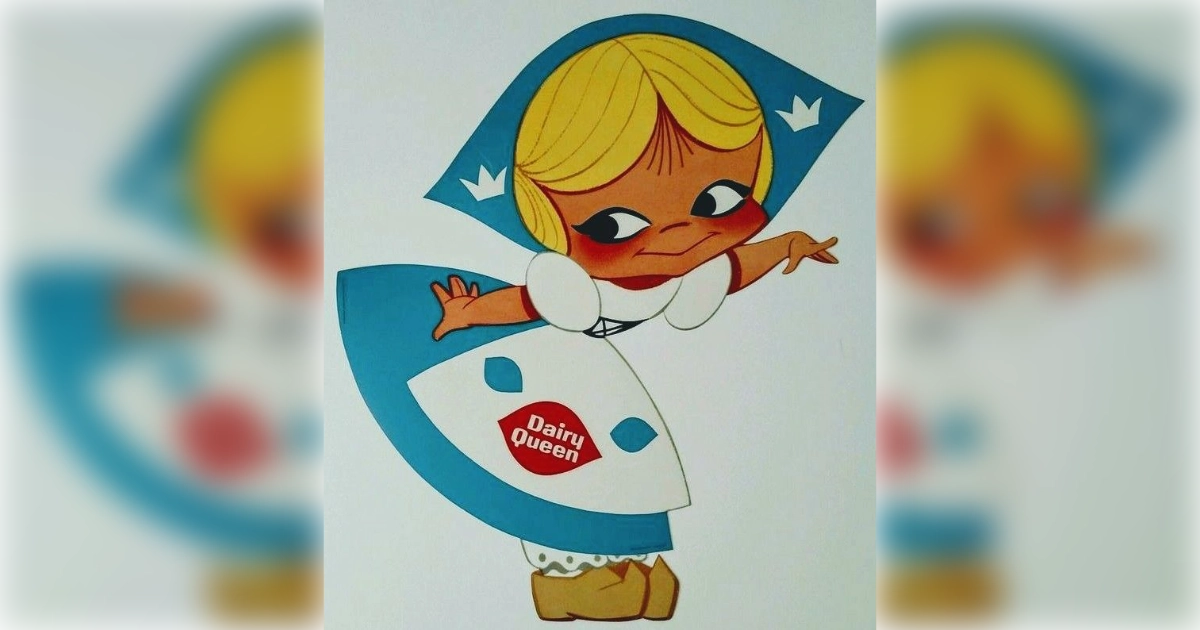
1961-1980s
In 1961, Pennsylvania stores started displaying a little girl in a Dutch bonnet shaped like DQ's ellipse logo. She wore a pinafore apron and wooden shoes.
The concept centered on old-fashioned American values. A 1962 newspaper article explained that DQ was responding to customers who associated the chain with wholesome, Colonial aesthetics. By 1962, Little Miss Dairy Queen topped new barn-styled stores as a weathervane. She appeared in newspaper ads.
DQ committed. They held Little Miss Dairy Queen pageants at franchises nationwide.
By the 1980s, she'd disappeared from advertising and rooflines. But eight signs featuring Little Miss Dairy Queen remain.
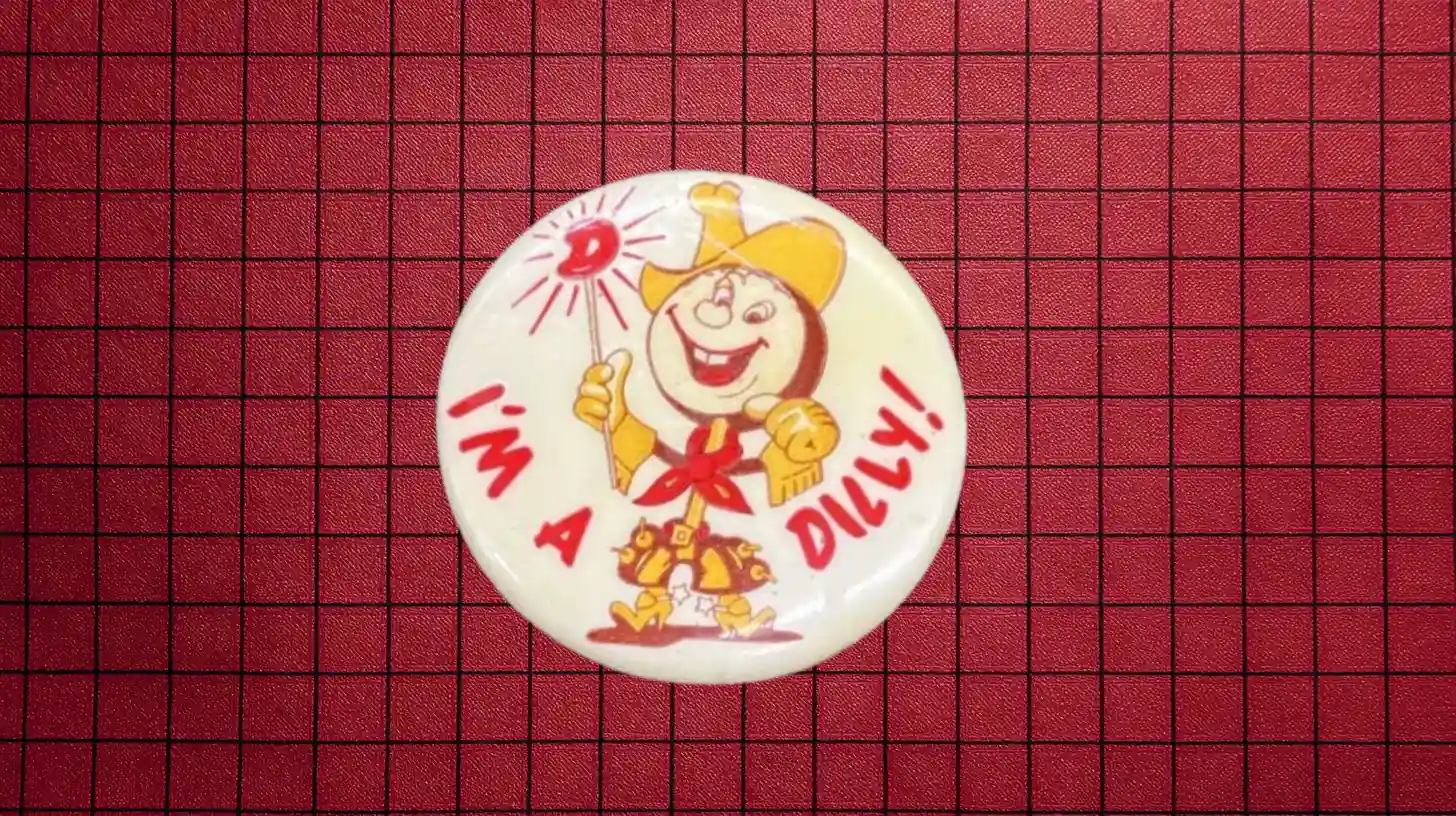
1960s
Nobody is sure when Dilly the Cowboy was introduced. But a wrapper and pin from the 1960s confirms he existed.
Dilly was an ice cream bar dressed as a cowboy. The round bar formed his head, complete with a grin, two arms with tasseled gloves, and a bandana. He promoted the Dilly Bar, introduced in 1955.

1971-2002
Dennis the Menace appeared in DQ marketing for 31 years. He fit naturally with a family ice cream chain.
In December 2002, DQ dropped him. The reason: kids couldn't relate to a comic strip character anymore.
The partnership lasted three decades, then ended.
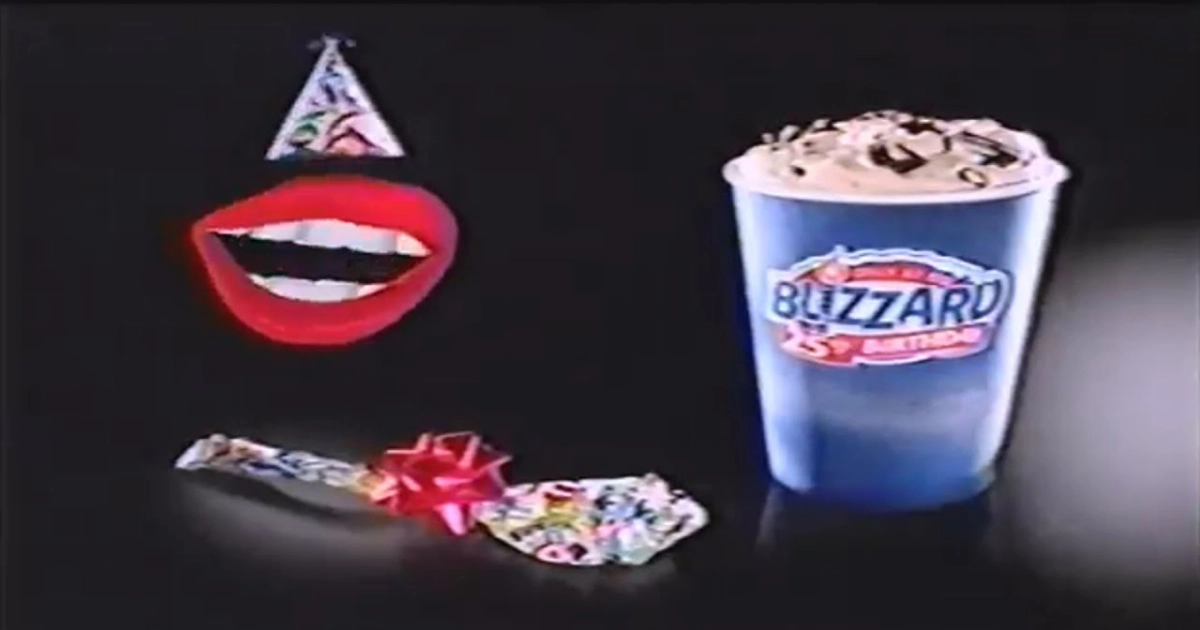
1978, then 2006-2011
The Lips appeared once in 1978, in a commercial for the Super Brazier burger. The lip mascot then disappeared for 28 years.
In 2006, they returned as CGI disembodied lips with red lipstick, floating in the air. Oliver Vaquer voiced them in most commercials. The lips spoke in a male American voice despite appearing feminine. They were smug, patronizing, and strange.
The ads ran in the US and Canada, with some in Mexico and at least one in the Philippines.
The lips appear to parody those from The Rocky Horror Picture Show.
In 2011, the Lips were officially retired again.

1989-Early 1990s
The Texas Dairy Queen Operators' Council filed the trademark for the Fun Bunch Munch in December 1989. The mascots were first used commercially in February 1990.
This was a group of animal mascots for kids' meals. Kangachew the kangaroo. Hungrizzly the bear. Chompanzee the chimpanzee.
They appeared only in Texas, on kids' meal placemats and promotions. But they only lasted about a year.
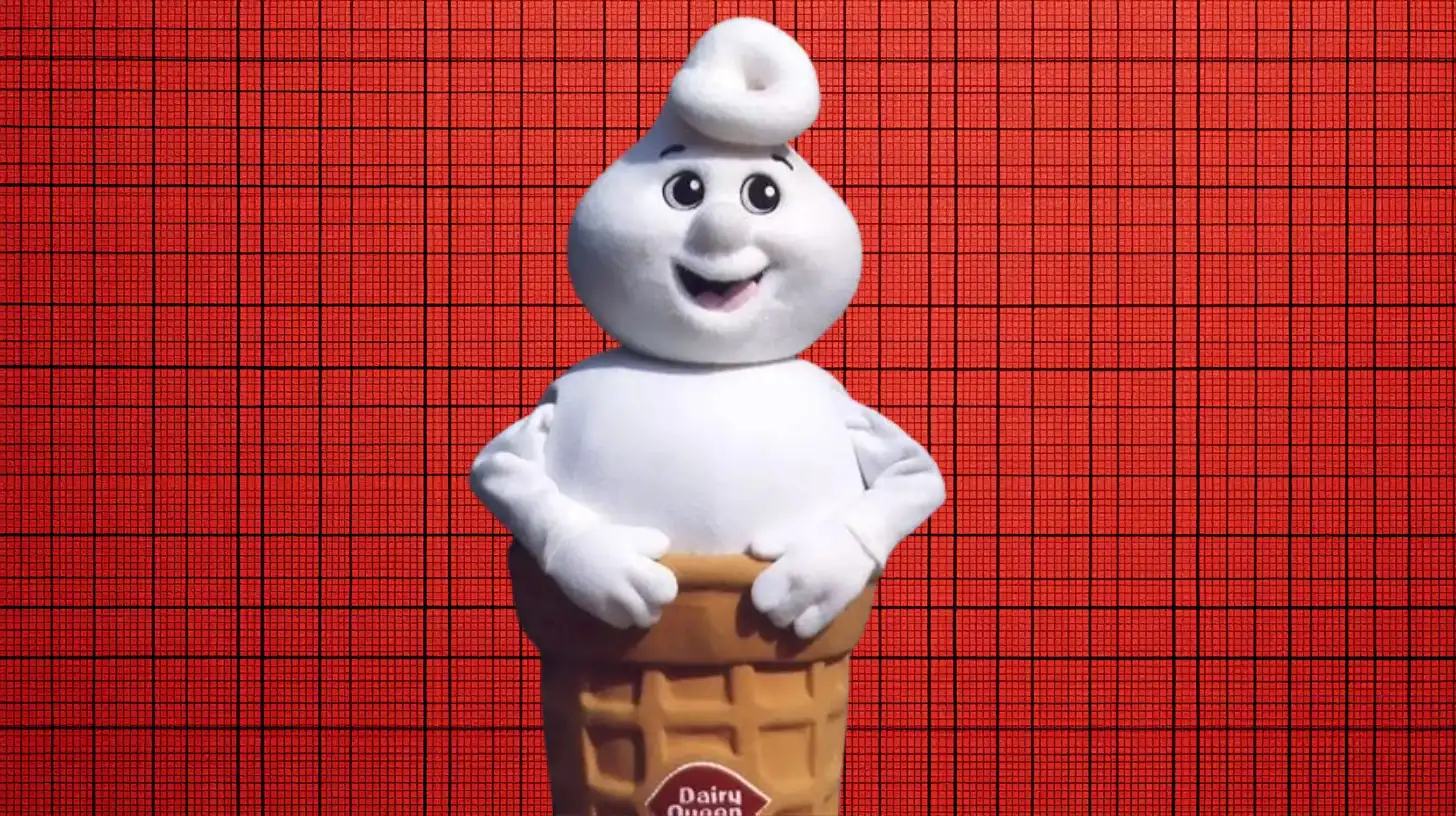
The exact date Curly became official is unclear, but it appears to be 1997, when DQ started releasing plush toys of a vanilla cone with legs.
Today, Curly is the official mascot for Dairy Queen. DQ even hires people to wear a soft-serve cone suit with the curl on top to lure in customers.
That's it. A walking ice cream cone.
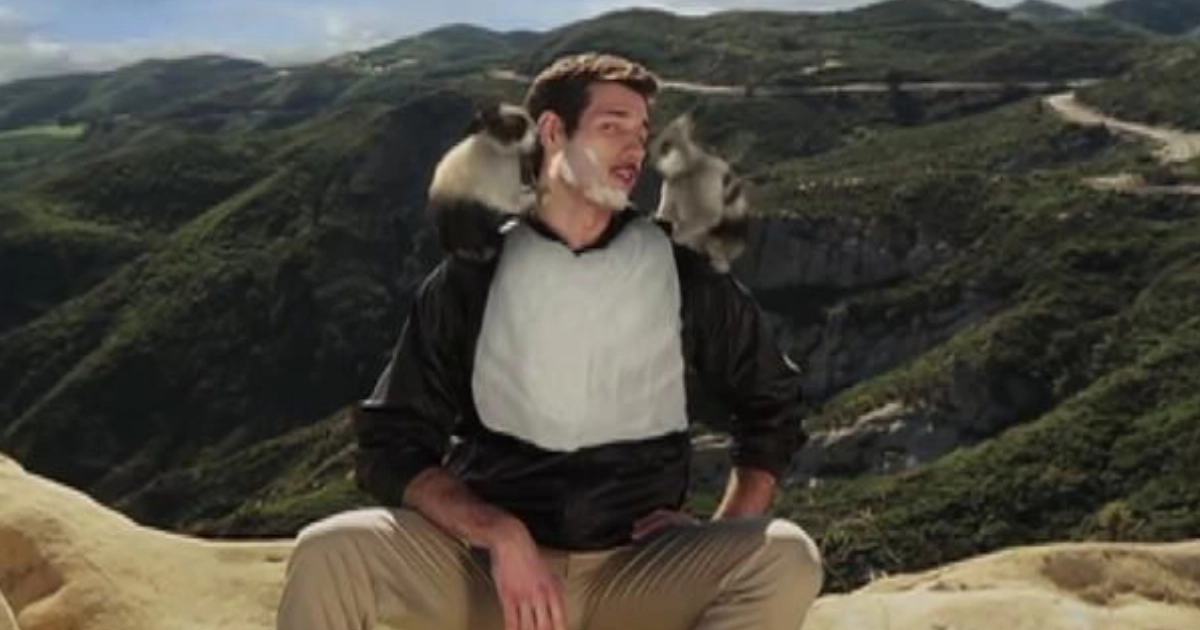
2011 Campaign
After Grey New York retired the Lips mascots, they produced commercials featuring a dapper man with a mustache, played by John Behlmann.
He'd announce menu offers, then do something absurd. Blow bubbles with kittens inside. Water ski while boxing. Break open a piñata containing Olympic gymnast Mary Lou Retton.
The campaign was brief but memorable.